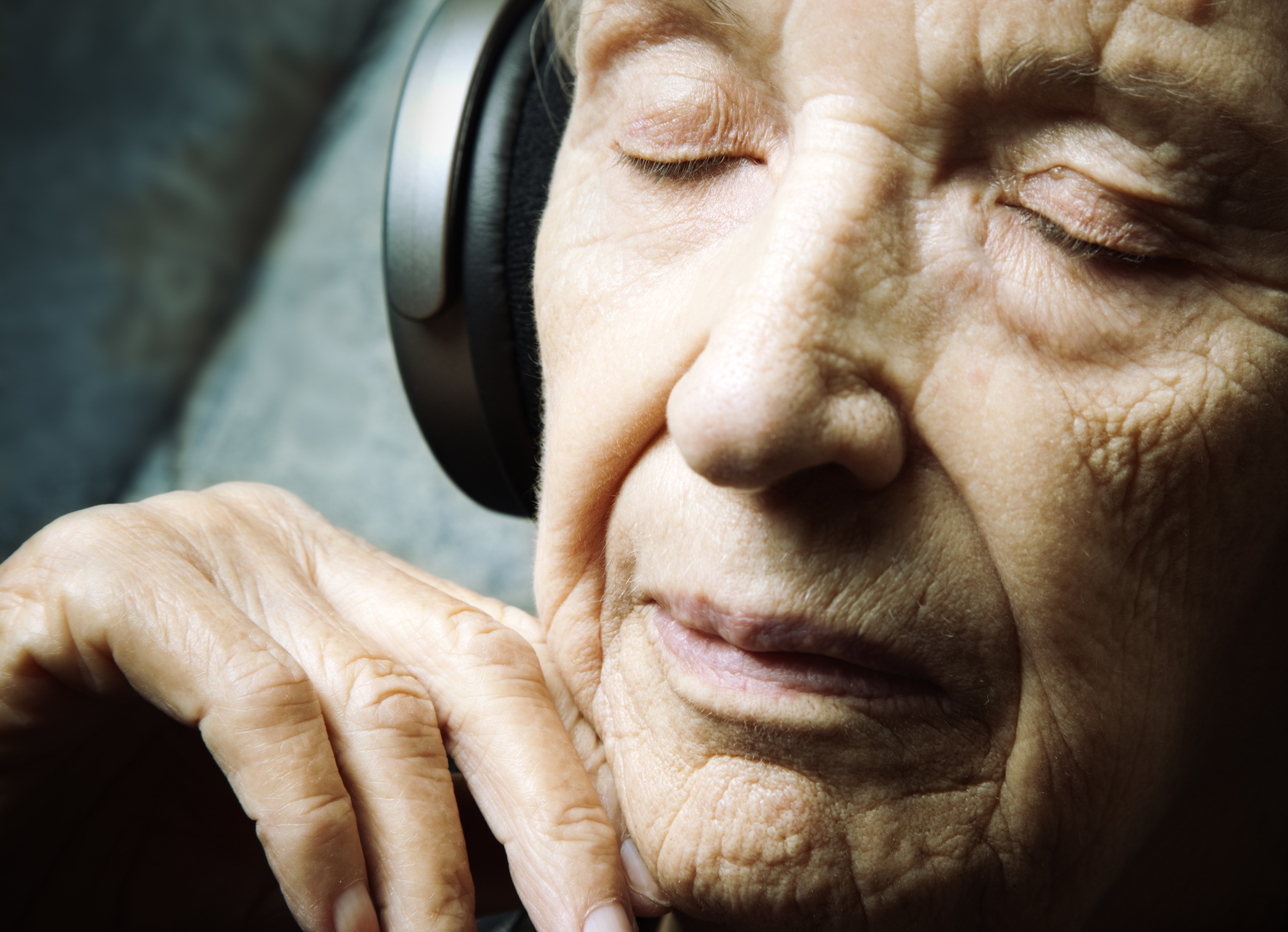Even when dementia robs older adults of recent memories, names and time, somehow music can still reach places in the brain no other means of communication can. Music therapy offers a way to help recover lost memories of loved-ones and bring joy to elderly adults in long-term and hospice care. And as part of end-of-life care, music therapy has been found to improve quality of life, promote peacefulness and even reduce pain.
A recent report in the New York Times follows the care given by end-of-life music therapy specialist Kaitlyn Kelly who works with elderly nursing home residents, helping them to write songs with surprising success despite frailty and memory loss. Nearly a third of her regular 10 to 15 patients are able to participate in creating music while other derive pleasure just listening to familiar tunes.
Even without the guidance of a music therapist, informal caregivers can use music therapeutically to help calm agitated dementia patients or elderly adults suffering depression or anxiety, reducing the need for psychotropic drugs. Because music is learned by repetition and is often tied to emotion, even as other memories are lost in old age or as a result of dementia, musical memory remains intact. Tapping into this stored knowledge can not only bring joy to patients, it can offer loved-ones and caregivers an opportunity to feel a connection and provide a pathway for joyful communication.
In recent years, there has been a shift away from clinical end-of-life care that extends life by all means possible to care that focuses instead on quality of life and a better, less invasive death. Music can play an important roll in providing comfort, hope and a sense of peace as life draws to a close, a much better soundtrack to leave by than beeping monitors or clicking respirators.
To learn more about music therapy in end-of-life care, follow this link to the Center for Music Therapy in End of Life Care.






Add Your Voice
0 Comments
Join the Discussion